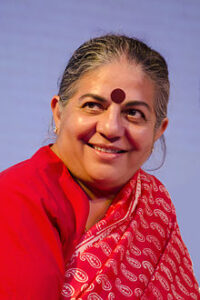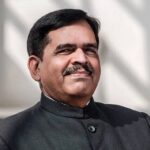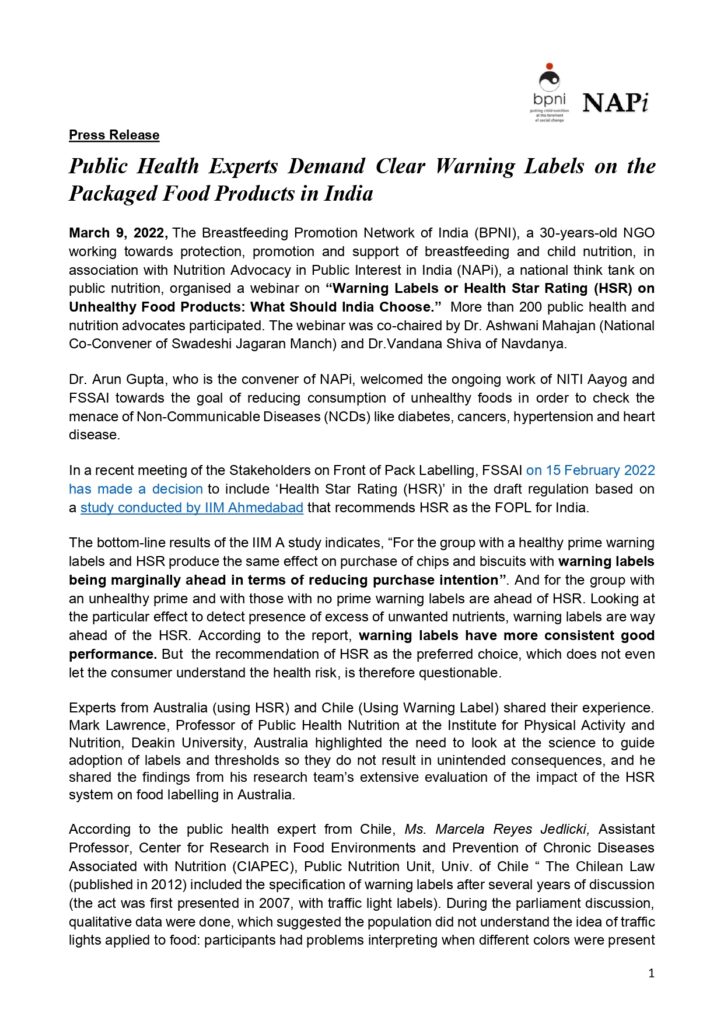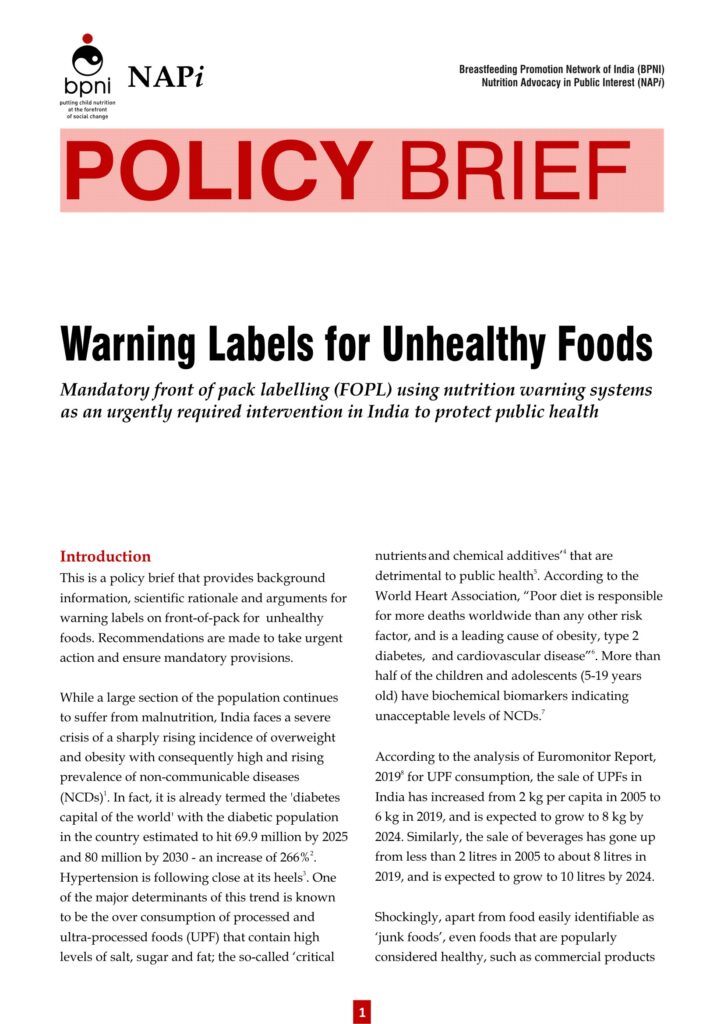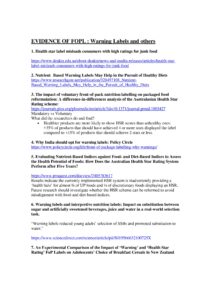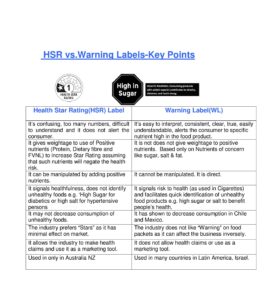WEBINAR ON Warning Labels or Health Star Rating (HSR) on Unhealthy Food Products: What Should India Choose?
Dated: 9th March 2022 Time: 3:30 pm-6:00 pm (IST)
Background
In India a large section of the population continues to suffer from malnutrition, the country faces a severe crisis of a sharply rising incidence of overweight and obesity with consequently high and rising prevalence of non-communicable diseases (NCDs). In fact, it is already termed the 'diabetes capital of the world' with the diabetic population in the country estimated to hit 69.9 million by 2025 and 80 million by 2030 - an increase of 266%. Hypertension is following close at its heels.
According to the National Family Health Survey (NFHS-5) 2019-20, the percentage of obese women increased to 24 per cent from 20.6 per cent in 2015-16, while the percentage for men rose to 22.9 per cent from 18.4 per cent four years earlier.One of the major determinants of this trend is known to be the over consumption of processed and ultra-processed foods (UPF) that contain high levels of salt, sugar and fat; the so-called ‘critical nutrients and chemical additives’ that are detrimental to public health. Across the globe, developed countries have shown an established nutrition transition to overweight and they have tried various methods to restrict the production and intake of these foods.
According to reports, "NITI Aayog, in collaboration with IEG and PHFI, is reviewing the evidence available to understand the actions India can take, such as front-of-pack labelling, marketing and advertising of HFSS foods and taxation of foods high in fats, sugar and salt, "
Meanwhile the FSSAI has made a decision to include ‘Health Star Rating (HSR)’ in the draft regulation based on a study conducted by IIM Ahemdabad.
In a recent ‘National Deliberation on Front of Pack Labelling’, organized by a consortium of AIIMS Rishikesh and others across the country, a study was shared that most people prefer warning labels that highlight nutrients of concern, and these work best to safeguard public health and experts believed that these can result in immediate public health benefits.
BPNI and NAPi, and its expert group has developed a Policy Brief on “Warning Labels for Unhealthy Foods” Mandatory front of pack labelling (FOPL) using nutrition warning systems as an urgently required intervention in India to protect public health” that aims to provide background information, scientific rationale and arguments for warning labels on front-of-pack for unhealthy food products as the preferred option in Indian context and makes recommendations to curb the consumption of unhealthy food products in high salt, sugar and fat to protect public health.Experts from Australia and Chile will present their view and experience of using warning labels and HSR.
Objectives:
- To present and discuss the Policy Brief on “Warning Labels for Unhealthy Foods”: Mandatory front of pack labelling (FOPL) using nutrition warning systems as an urgently required intervention in India to protect public health.
- To share expert views on use of HSR v/s Warning labels on unhealthy packaged foods /ultra-processed foods and build consensus among health and nutrition professionals which label would work better for India.
- To provide policy inputs to the respective authorities and Niti Aayog.
CHAIRPERSONS
|
Dr. Vandana Shiva Dr. Vandana Shiva is trained as a Physicist and did her Ph.D. on the subject “Hidden Variables and Non-locality in Quantum Theory” from the University of Western Ontario in Canada. She later shifted to inter-disciplinary research in science, technology and environmental policy, which she carried out at the Indian Institute of Science and the Indian Institute of Management in Bangalore. In 1982, she founded an independent institute, the Research Foundation for Science, Technology and Ecology in Dehra Dun dedicated to high quality and independent research to address the most significant ecological and social issues of our times, in close partnership with local communities and social movements. In 1991, she founded Navdanya, a national movement to protect the diversity and integrity of living resources, especially native seed, the promotion of organic farming and fair trade. In 2004 she started Bija Vidyapeeth, an international college for sustainable living in Doon Valley in collaboration with Schumacher College, U.K.Dr. Shiva combines the sharp intellectual enquiry with courageous activism..Time Magazine identified Dr. Shiva as an environmental “hero” in 2003 and Asia Week has called her one of the five most powerful communicators of Asia. Forbes magazine in November 2010 has identified Dr. Vandana Shiva as one of the top Seven most Powerful Women on the Globe. Dr. Shiva has received honorary Doctorates from University of Paris, University of Western Ontario, University of Oslo and Connecticut College, University of Guelph.Among her many awards are the Alternative Nobel Prize (Right Livelihood Award, 1993), Order of the Golden Ark, Global 500 Award of UN and Earth Day International Award. Lennon ONO grant for peace award by Yoko Ono in 2009, Sydney Peace Prize in 2010, Doshi Bridgebuilder Award, Calgary Peace Prize and Thomas Merton Award in the year 2011,the Fukuoka Award and The Prism of Reason Award in 2012, the Grifoned’Argento prize 2016 and The MIDORI Prize for Biodiversity 2016, Veerangana Award 2018, The Sanctuary Wildlife Award 2018 , International Environment Summit & Award 2018 and Amrita Devi Award 2021.
|
|
Dr. Ashwani Mahajan Dr. Ashwani Mahajan is the National Co-Convener of Swadeshi Jagaran Manch (SJM), an Indian political and cultural organisation. SJM is affiliated with the Rashtriya Swayamsewak Sangh. Mahajan worked as an author and columnist. He is an Associate Professor at PGDAV College, Delhi. Mahajan is Chief Editor of the Journal of Contemporary Indian Polity and Economy since 2011. Mahajan is also a Visiting Professor and research guide at Pacific University, Udaipur and Mewar University. He works as a researcher and activist on World Trade Organization (WTO) and other international trade agreements, he has attended three ministerial conferences of WTO held at Geneva, Bali and Nairobi, as representative of Swadeshi Jagran Foundation, which is an accredited NGO with WTO. |
SPEAKERS

Prof. Mark Lawrence
Professor of Public Health Nutrition
Deakin University, Australia
Mark Lawrence is Professor of Public Health Nutrition at Deakin University. He has 36 yrs experience as a practitioner and academic in food and nutrition policy at local, state, national and international levels. Mark’s research focuses on Dietary Guidelines (advises WHO and FAO), Food regulation (Board member, FSANZ), Ultra-processed foods and the science and politics of food and nutrition policy to promote healthy and sustainable food systems (member, NHMRC evidence synthesis/translation committee).
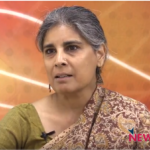
Dr Vandana Prasad MBBS, MRCP-Ped,MPH
Founder Secretary, National Convener and Technical Advisor for Public Health Resource Network (PHRN)
Dr. Vandana Prasad is community pediatrician and public health professional and has been engaged with the social sector for over twenty five years. Her main experience and expertise is in the area of malnutrition, health systems strengthening and child rights. She is the Founding Secretary, and Technical Advisor Public Health Resource Society and has been the National Convenor Public Health Resource Network for over ten years from inception till 2020. She has been a Joint National Convenor of People’s Health Movement-India (Jan Swasthya Abhiyan) and an active member of the Right to Food Campaign. Dr. Prasad has also served the Government of India as Member (Child Health), National Commission for Protection of Child Rights.

Dr. Neha Khandpur,
Faculty of Public Health, Dept. of Nutrition,
University of Sao Paulo, Brazil
Dr. Neha Khandpur is the recipient of a 5-year Jovem Pesquisador grant that aims to assess the impact of front-of-package nutrition labeling on public health in Brazil. Her research interests broadly focus on the influence that environmental factors have on food and activity choices and how these may be leveraged for creating healthier environments and preventing disease.

Marcela Reyes Jedlicki
INTA Academic, Assistant Professor
Center for Research in Food Environments and Prevention of Chronic Diseases Associated with Nutrition (CIAPEC), Public Nutrition Unit, Chile
Marcela Reyes is the Medical Doctor (MD), Master (Msc) in Nutrition and Doctor (PhD) in Nutrition and Food from the University of Chile. Assistant Professor at the Institute of Nutrition and Food Technology (INTA) and academic at the Center for Research in Food Environments and Nutrition-Related Chronic Diseases (CIAPEC), at the University of Chile, where she has participated as a co-researcher in longitudinal studies associated to the evaluation of the Chilean Law 20.606 on Labeling and its Advertising.It is worth highlighting her role as Principal Investigator of two projects with national funding (FONDECYT), focused on: (1) determining the effect of diet on weight gain and metabolic alterations among infants, preschoolers and adolescents, and (2) determining the consumption of Non-Caloric Sweeteners in the same age groups, after the implementation of Law 20.606 on Chilean Labeling and its Advertising. The results of both studies will contribute to support the development of structural policies to promote healthier food environments and non-communicable diseases prevention.
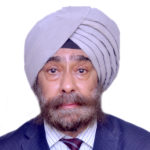
Dr. H P S Sachdev
Senior Consultant in Pediatrics and Clinical Epidemiology,
Sitaram Bhartia Institute of Science and Research, New Delhi
Dr. Harshpal Singh Sachdev, who is a Senior Consultant in Pediatrics and Clinical Epidemiology at Sitaram Bhartia Institute of Science and Research, New Delhi; Honorary Senior Research Fellow, UCL Institute for Global Health, University College London; Adjunct Professor, St. John’s Research Institute, Bangalore; and a practicing paediatrician. Professor Sachdev is credited with 313 indexed publications, editing 16 books and contributing to 39 reports. He has published several systematic reviews including Cochrane reviews on nutrition and child health and has been an editor for the Cochrane Developmental, Psychosocial and Learning Problems Group since 2008.
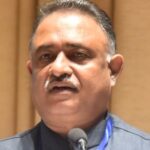
Mr. George Cheriyan
Director, CUTS International
Mr. George Cheriyan is Director of CUTS International, an Indian origin international public policy research and consumer advocacy organisation, headquartered in Jaipur, India established in 1983. George was a member of Central Advisory Committee (CAC) of Food Safety and Standards Authority of India (FSSAI) during 2014-19 and presently a member of Food Hygiene, Safety Management and Other Systems Sectional Committee (FAD15) of the Bureau of Indian Standards (BIS). He is also presently a member of the Stakeholders group on Front of the Pack Labelling (FoPL) of FSSAI and a member of the Food Authority (FSSAI), as special invitee. He is also a member of Central Consumer Protection Council (CCPC), since 2007. George is a member of Global Think Tank Group on Sustainable Consumption hosted by Swedish Society for Nature Conservation (SSNC), Stockholm, and a Member United Nations Roster of Consultants on sustainable development since 1995. George is having more than 37 years of experience in development sector, exposure from traveling in about 36 countries and have experience of consulting for bilateral and multilateral agencies. George was awarded the prestigious Rodha Karpatkin International Consumer Award in 2013 by American Council on Consumer Interests (ACCI), for his significant contributions to the welfare of consumers on the international stage.
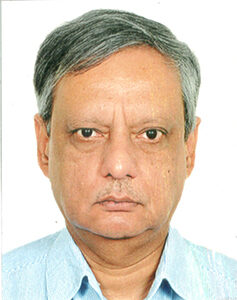
Mr. Ashim Sanyal
CEO, Consumer Voice
Mr. Ashim Sanyal, is the Chief Operating Officer and Secretary of Consumer VOICE, a New Delhi based NGO/VCO working in the field of consumer awareness, empowerment and education besides other projects on Tobacco Control, Road Safety, Car Safety, Green Environment Solutions, Health & Food, Nutrition, Food Security, Financial Literacy etc. He is heading Consumer VOICE since 2007 reporting to the Board and Governing Council. Mr. Sanyal has worked in various reputed MNC companies in the corporate sector in India for over 26 years in India & abroad as a senior corporate manager having risen to CIO / CEO positions. After completing B.Com(Honors) he did his MBA from University of Delhi. Besides the usual work, he is managing assignments with Ministries like Consumer Affairs, Finance, Food, Health, Food Processing, Corporate Affairs, DoT, HRD etc. besides representing VOICE in standardization bodies like BIS, BEE, QCI, STQC etc. Also he represents Consumer Voice in Regulatory bodies like FSSAI, TRAI, SEBI, RBI, IRDA, AERA, AAI, DGCA etc. He is a full member of Consumers International & ICRT, London besides managing working partner relations with ISO, COPOLCO, WHO, CODEX, UNIDO, World Bank, Climate Works Foundation, CLASP, REEP, GRSP, CTFK, GHAI, UNDP, Ford Foundation, Bloomberg, RTSL etc.

Mr. Amit Khurana
Director, CSE
At CSE, Mr. Amit Khurana has been leading the research and advocacy to push for necessary change in policy and practice towards Sustainable Food Systems. This includes areas related to antibiotic use in food-animal intensive production systems and Antimicrobial Resistance; pesticide use in crops and non-chemical farming such as organic and natural farming; and marketing and promotion of junk foods such as related to labelling, advertisements and claims as well as availability in schools.
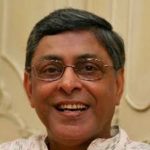
Dr. Arun Gupta
Moderator and Convenor, NAPi/BPNI
Dr. Arun Gupta is a pediatrician, a Fellow of Indian Academy of Pediatrics who chose to give up his lucrative private practice and founded the ‘Breastfeeding Promotion Network of India’ (BPNI) in 1991. He focuses on policy analysis regarding support to breastfeeding women, child nutrition and conflicts of interest. He writes nationally and internationally. He is the creator of IBFAN’s World Breastfeeding Trends Initiative (WBTi). He is the convener of the “Alliance Against Conflict of Interest” (AACI) and “Nutrition Advocacy in Public Interest” (NAPI) in India for policy level inputs.
Webinar Video recording
Resource Materials
|
|
Download PowerPoint Presentation
Warning Labels for Unhealthy Foods :- Dr. Vandana Prasad
Chilean Experience of Using Warning Labels as FOPL: Marcela Reyes
Australian Experience of using HSR: Mark Lawrence
